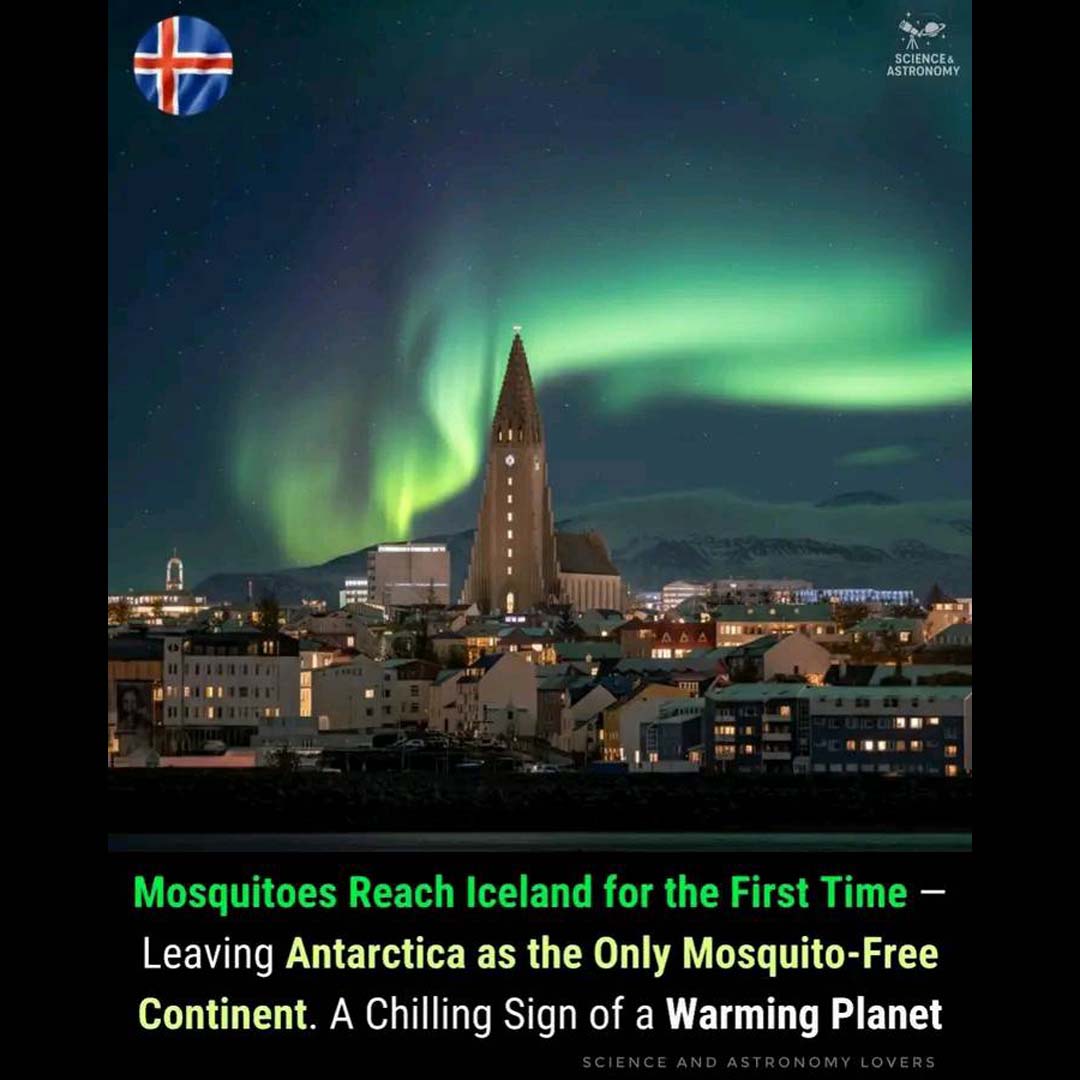Warming Planet

MOSQUITOES DISCOVERED IN ICELAND FOR FIRST TIME
For the first time ever, mosquitoes have reached Iceland – a country long thought too cold for these buzzing pests. Scientists say this could be a direct result of rising global temperatures – creating conditions warm enough for mosquitoes to survive in places once far too cold.
Experts are calling it a wake-up call for the world. If insects that thrive in warmth can now survive in Iceland, it shows how fast the planet’s climate is changing. It may seem like a small discovery, but it’s a powerful reminder that no place on Earth is untouched by climate change.
Along with Antarctica, Iceland has long been one of the few places on earth without a mosquito population. With the new discovery, Antarctica is now the only mosquito-free continent.
“It is the first record of mosquitoes occurring in the natural environment in Iceland,” reported Matthias Alfredsson, an entomologist at the Natural Science Institute of Iceland. The species is cold-resistant and can survive Icelandic conditions by sheltering through winter in basements and barns.
Rising temperatures, longer summers and milder winters, all brought on by climate change, create a more favourable environment for mosquitoes to thrive.
Scientists have predicted for some time that mosquitoes could establish themselves in Iceland as there are plentiful breeding habitats such as marshes and ponds. Many species will be unable to survive the harsh climate, however.
Historically, standing water froze too early for mosquito eggs to hatch. But warmer winters and longer thaws now leave puddles and barrels liquid for weeks, giving larvae a chance to mature. Researchers say it’s not just a curious headline; it’s a clear marker of a warming Arctic.
Studies have shown that the Arctic region is warming at 4 times the rate of the rest of the planet, and Iceland has experienced record heat this year. Glaciers have been collapsing and fish from warmer, southern climes such as mackerel have been found in the country’s waters.
References: The Guardian (21 Oct 2025); AFP (22 Oct 2025); Science & Astronomy; Discvr.blog

